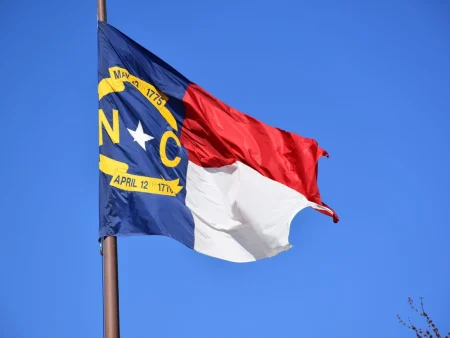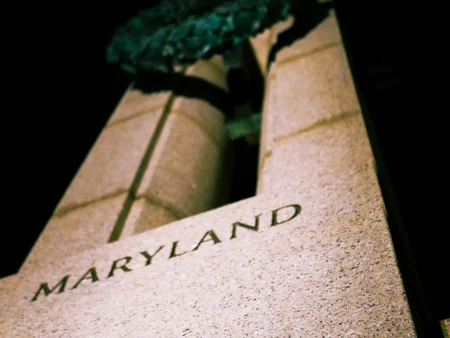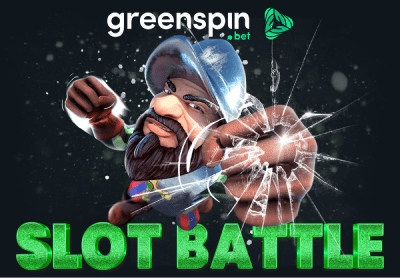Shirt deals ending, a new football regulator and warnings to white labels have threatened to disrupt gambling sponsorships in English football.
For as long as sports betting has been licensed in the UK, the sector has been deeply connected to football and gambling branding has become synonymous with the sport, largely through sponsorship deals with Premier League teams.
But times are changing and the deals that have been in place for years have come under fire in recent months.
Critics have long warned that there is too much gambling advertising within the sport, which presents a risk to children watching and engaging with football. In an effort to quieten these claims, Premier League teams agreed on a voluntary ban on front-of-shirt sponsorships in April 2023.
This will inevitably force teams and operators to pivot away from the traditional sponsorship model and adopt new and innovative brand exposure opportunities during matches. The move comes into force from the end of the 2025-26 Premier League season, in May next year.
What will the new era of football gambling sponsorships look like?
Alan Alger, industry sponsorship and PR specialist, expects teams will (and likely already have) inflated the price of their shirt sponsorships ahead of the ban, as gambling companies scramble to maintain that visibility for a final season.
“The savvy clubs that know this are obviously putting their prices up for next season, knowing that this is their last opportunity. And you would also expect the clubs in the Championship, which are eyeing a return to the Premier League, will all be looking at the chance to have one big payday back in the league,” he tells iGB.
Alger played a pivotal role in securing and managing Betway’s 2015 principal sponsorship agreement with West Ham United. Reflecting on the 10-year-old partnership, he says it was a “very good deal for Betway”, whose brand appeared on the team’s shirts from the middle of the season, after the team’s former partner went bust.
“If you’re going to introduce yourself to a new market, one of the best ways is via the most-watched sport,” he says.
LEDs and sleeve sponsorships still available to gambling operators
But this legacy model is primed for change. Those close to the deals expect the sector will adapt and gambling branding will be just as present in the sport, both via LED advertising boards around the pitch and through novel activations with players and their teams.
“You might see companies that have a largely global reach start to use player appearances for adverts in countries that don’t have as tight a legislation as we do in the UK,” Alger suggests.
Currently, the UK prohibits players under the age of 25 from appearing in gambling marketing as this could appeal to an underage audience.
“I think there will still be immense value in a betting partnership with a football club,” says one legal source active in the gambling sponsorships space.
“The sleeve is still available, the LEDs are still available and, outside of the UK, using players to promote your brand is still available. It really depends on the structure of the deal, but if it’s a global deal then I think there’s as much value in that.
“The interesting thing will be how the price of these deals is affected by exclusivity, because with a front-of-shirt deal, you’re paying big money for that, it’s very visible and there’s a lot of exclusivity that you normally get with that.”
Could gambling sponsorships become more regional?
Some also expect operators and teams may slightly move the goalposts on the kinds of partnerships they form. Outside of front-of-shirt deals, many operators sign on as global betting partners for leading football teams. But in the future, this could become much more region specific, with teams adopting Asian or African betting partners, for example.
The legal source believes this could open up new exclusivity opportunities for operators. “They might think about doing regional deals, as opposed to a global partner, that provides exclusivity to do multiple LED minutes from different regions,” they add.
“But it’s very complicated around where you can and can’t serve the advertising. And obviously they’ve got broadcast feeds going out all around the world, so it’s quite an operation for them.”
Partnering with leagues and rights holders to maximise brand exposure
Operators have also begun to partner with tournament holders to maximise brand activations and expand their global reach.
Bet365 announced a landmark betting partnership with the UEFA Champions League in August last year, covering the men’s Champions League, from the 2024-25 season until the 2026-27 campaign.
As part of the deal, Bet365 maintains exclusivity over stadium branding during Champions League matches. “That was a good move by Bet365, but they’ve got the money to do it,” says Alger.
“If you can partner up with tournaments and rights holders, as in leagues and cup tournaments, you’ve got a much better chance of having [your brand] spread across lots of different teams,” he tells iGB.
But the legal source notes global deals, like those with leagues, are riskier from a due diligence perspective. Leagues may have a lower appetite for risk than teams as they are bound by regulation and public perception.
“[They will] need to do a really thorough analysis of exactly what their rights are and whether there is any potential for either party to commit an offence [under the terms of the deal],” the lawyer adds.
Are white label sponsorships under threat?
Both the UK government’s Department of Culture, Media and Sport and the Gambling Commission have said white label football sponsorships are under investigation. The model enables non-UK licensed operators to forge sponsorship deals with teams, as long as a white label version of their product, operated by a locally licensed company, is active in the market and meets all gambling regulations.
“I think everyone thought that was quite a sensible rule, because you have got a brand in the UK that is licensed and you do have a touch point for the club, the fans and everyone else to see,” Alger says of the white label model.
However, in December, gambling minister Baroness Twycross told an audience at the GambleAware annual conference the government was investigating the white label sponsorship model. This followed news that Curacao-licensed BC Game was largely operating illegally and had been declared bankrupt by a local court for failing to pay out player winnings.
Nothing has been announced by the DCMS since this mention of the investigation last year.
BC Game was swiftly stripped of its UK white label licence and its sponsorship deal with Leicester City was thrown into question.
At the time the football club said the operator was appealing the case, and it had no issues with liquidity.
Stake remains on Everton’s shirts for now
Then, in February, Stake was stripped of its UK white label licence, amid a Gambling Commission investigation into social media advertising from the operator. Despite no longer operating in the UK market, Stake remains Premier League team Everton’s shirt sponsor, at the time of writing.
The Everton/Stake deal signed in June 2022 raised eyebrows considering Stake’s cryptocurrency gambling activities globally, although gambling with crypto is not prohibited in the UK.
The Gambling Commission said it would contact Everton, as well as two other clubs with unlicensed betting sponsors, to warn them of the risks of promoting illegal sites.
Despite these warnings, the legal source does not foresee a significant change in the white label model in the short term.
“The change can come from legislation. And currently, the legislation is quite clear that you must have a licence, if you’re doing certain things as a gambling operator in Great Britain. A change in the law is not going to happen easily,” they suggest.
The other option for changing the model is if either the football or gambling industry champions a change in the system.
“[But] the only real incentive for [the teams], as they’re turning down money that these people are prepared to pay, is to raise the standard of the sport and make sure there isn’t money coming in from [bad actors].”
House of Lords approves Football Governance Bill
Historically, there has not been much regulation around the sport itself in the UK, but last year a bill was established in Parliament to build a regulatory framework that can govern football.
The Football Governance Bill was initially introduced via the House of Lords in October, with the aim of establishing an independent football regulator to oversee the sport and handle issues such as club licensing.
Law firm Pinsent Masons said the independent football regulator would oversee the licensing of football clubs in the top five flights in men’s football.
In a blog post, dated 27 March, the firm said the entity would “ensure the fair distribution of revenue from football broadcasting deals and protect the interests of fans and communities”.
In the final stages of House of Lords discussions, an amendment to enforce a ban on gambling sponsorships and advertising within the sport was suggested. But this was swiftly vetoed, by a clear majority of 339 to 74.
The clause was put forward by Liberal Democrat politician Lord Addington in March’s round of amendments.
“Duty to prevent advertising and sponsorship related to gambling in English football. English football must not promote or engage in advertising or sponsorship related to gambling,” the proposed clause said.
Lower tier teams would suffer most from gambling sponsorship ban
But members argued lower tier and non-league teams would suffer financially from the loss of gambling deals.
Member Baroness Fox of Buckley asked: “Why would we cut off a perfectly legitimate source of funding in the form of lucrative sponsorship, which is what these amendments would do?”
She also said a ban on gambling sponsorship would create a politically charged regulator, which was not the bill’s intention.
Both Alger and the lawyer are skeptical about whether a full ban will ever come into force.
“We’ve seen bans on branding from other sectors like alcohol and tobacco in sports,” the lawyer says. “But again, it’s usually the sports themselves that say, ‘This no longer feels like the right thing to do.’ There are different views on the health issues associated with gambling.”
The bill has, at the time of writing, reached the committee stage at the House of Commons.
For now, it looks like gambling sponsorships are safe from total prohibition. While the model is evolving, and new versions of legacy deals are coming to the forefront, the sector’s bond with English football is too deep-rooted to be totally scrapped.
Original Article















